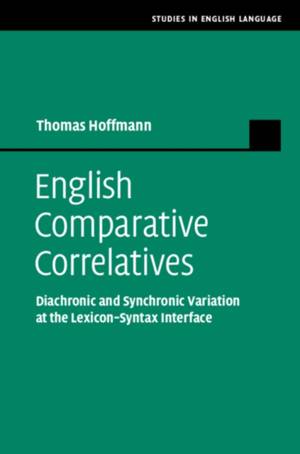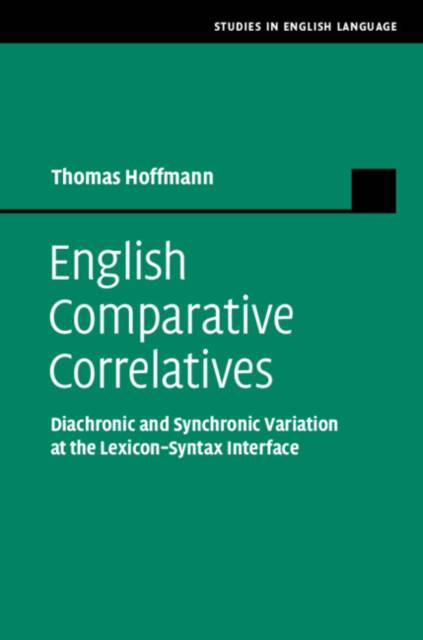
- Afhalen na 1 uur in een winkel met voorraad
- Gratis thuislevering in België vanaf € 30
- Ruim aanbod met 7 miljoen producten
- Afhalen na 1 uur in een winkel met voorraad
- Gratis thuislevering in België vanaf € 30
- Ruim aanbod met 7 miljoen producten
Zoeken
English Comparative Correlatives
Diachronic and Synchronic Variation at the Lexicon-Syntax Interface
Thomas Hoffmann
€ 139,95
+ 279 punten
Uitvoering
Omschrijving
One of the most intriguing features of languages is that speakers can produce novel grammatical utterances that they have never heard before. Consequently, most linguists agree that the mental grammars of speakers are complex systems that must be more abstract than the input they are exposed to. Yet, linguists differ as to how general and abstract speakers' mental representations have to be to allow this grammatical creativity. This book addresses this issue by empirically investigating one specific construction, English comparative correlatives (e.g., the more you eat, the fatter you get). Drawing on authentic corpus data from Old English to Present-day English varieties around the world, it shows how input frequency and domain-general cognitive principles affect the complex mental network of constructions that underlies speakers' linguistic behaviour. This pioneering and original study will be of interest to scholars and students of English syntax and English historical linguistics.
Specificaties
Betrokkenen
- Auteur(s):
- Uitgeverij:
Inhoud
- Aantal bladzijden:
- 276
- Taal:
- Engels
- Reeks:
Eigenschappen
- Productcode (EAN):
- 9781108477215
- Verschijningsdatum:
- 20/06/2019
- Uitvoering:
- Hardcover
- Formaat:
- Genaaid
- Afmetingen:
- 156 mm x 236 mm
- Gewicht:
- 462 g

Alleen bij Standaard Boekhandel
+ 279 punten op je klantenkaart van Standaard Boekhandel
Beoordelingen
We publiceren alleen reviews die voldoen aan de voorwaarden voor reviews. Bekijk onze voorwaarden voor reviews.











